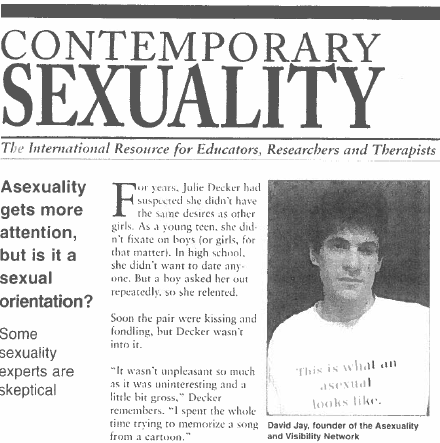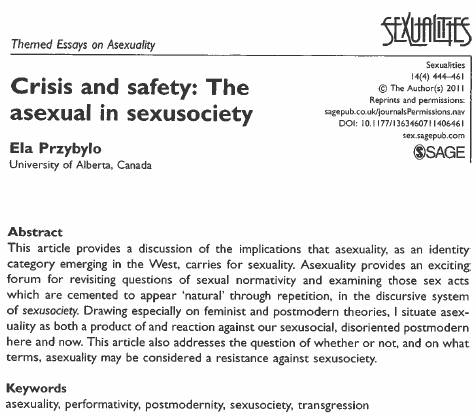soci 375
library research workshop
Winter 2024
Google: soci 375 concordia library
GUIDELINES FOR YOUR PROPOSAL
library-related instructions include:
- submit a well-conceived paragraph, single-spaced, with a title, subtitle, and tentative/preliminary bibliography....
- ...of peer-reviewed / scholarly articles or books that seem RELEVANT to your interpretive problem"
- locate "...disagreements among scholars, gaps in knowledge"
- follow customary scholarly CITATION format (ie MLA or APA) ...and carefully acknowledge your sources."
What do YOU want to cover today?
tell me here:
OUR Agenda....
but first:
need assistance with any of these agenda items?
ask questions - GET HELP:




at the AskUs desk
via chat
via email
by phone

Need assistance beyond a quick chat,
and have a bit of time to plan?
your subject librarian: susie.breier@concordia.ca (she/her)
ZOOM office hours most Tuesdays 3-5, or by appointment
Text
ZOOM office hours: most Tuesdays
3:30-5:30 pm
OR by appointment
AskUs Desk
Webster Library: most Mondays 3-5 pm

Text
Google: concordia library sociology
WHERE/HOW CAN
YOU FIND ME?
on my
SUBJECT GUIDEs
google:
anthropology concordia library




under sociology see:
sometimes librarians can't help but others in the library can:
writing assistance at the library and the university


[writing guides from the library]
- ACCESS resources at Concordia and beyond
- FIND material that is RELEVANT to your topic / problem
- Trace scholarly DEBATES using "Cited by" in Google Scholar
- Make sure material is SCHOLARLY / peer-reviewed / academic
- Enter KEYWORDS in Library Databases (search strategies)
- CITATION style guides (APA / MLA)
- Use ZOTERO
OUR Agenda
accessing resources at concordia & beyond

Search for library books, ebooks, articles and films


what if the library doesn't have it ONLINE?
request a book and pick it up later....


or use the call number and locate button to find it





what if the library DOESN'T have it at all?

search for it in any library worldwide:

... and simply request it!
but you CAN'T borrow ebooks from other libraries!!


what if you are looking
for a journal?
for example, the latest issue of Ecofeminism & Climate Change journal?


or continue on to finding material
relevant to your topic or problem....
my tentative topic / problem
In looking at recent writings and posts about the myths surrounding bisexuality, I keep encountering discussions around monogamy. For example:
How do both popular and academic discourses around bisexuality -- especially those purporting to debunk stereotypes -- actually work to reinforce normative or colonial constructs around monogamy and non-monogamy?
my tentative topic/question
reminders:
- Use the readings, authors and literature you already know... including primary sources if you want
- and explore those to the fullest!
- Use Google (or your favourite tool) to get smarter about your topic
- and THEN find scholarly articles and books....
to find scholarly articles or books
related to your topic / problem
where wouldyou search?
tELL your CLASSMATES
why does it matter so much?

where you search affects
what you find and how you find it


Search for specific library books, ebooks, articles and films
but go beyond sofia
to search for topics...
databases RELEVANT TO
sociology, anthropology & SEXUALITY STUDIES
FIND THEM ON YOUR SOCI/ANTH 375 LIBRARY TIPS PAGE:
search examples in these ebsco databases:
SEARCH EXAMPLE IN DIFFERENT DATABASES
combined


SEARCH EXAMPLE in socindex
2. when viewing results, note the new terms monogamous relationships, compulsory monogamy. Adjust your search to:
1. start simple, enter the terms monogamy AND normative
handout to download:
now how can you access / download articles you found?





GOOGLE SCHOLAR "CITEd by" -
A different search EXAMPLE:
I like the 2008 book: The Importance of Being Monogamous: Marriage and Nation Building in Western Canada to 1915 by Sarah Carter as it seems to provide relevant context for my topic.
I want to find more recent articles that engage with this work, but particularly in the context of normative or compulsory notions of monogamy.
I can enter the article title in Google Scholar, click on the "Cited by" link and then add "search within" keywords such as : normative OR compulsory to find a whole new set of interesting results






normative OR compulsory
google scholar strategies:
- use OR for alternative terms
- use quotation marks " " for phrases
- DON'T use AND (it is implied)
- DON'T use * ( happens automatically)
in ebsco article databases:
in google scholar:
("police brutality" OR "police violence" OR "police shootings")
AND
(racis* OR discrimination OR bias or profiling)
AND
(defund* OR aboli* OR reform)
("police brutality" OR "police violence" OR "police shootings") (racism OR discrimination OR bias or profiling) (defund OR abolition OR reform)
or continue on to identiying
scholarly / peer-reviewed....
scholarly / Peer-reviewed / academic
In some Library Databases you can use a checkbox:


VIDEO: peer-review in 3 minutes

or continue on to test yourself....
TEST YOURSELF:
is it academic / scholarly /
peer-reviewed?
which one(s) is/are scholarly?
link:
link:
which one(s) is/are scholarly?
This is a resource aimed at practitioners and researchers, but it is not written by an academic describing a research study or a theoretical framework. Though it casually refers to other studies, it does not seriously engage with other academic research and has NO BIBLIOGRAPHY!
This IS an academic/scholarly/
peer-reviewed article. Important clues: academic language, author draws on scholarly theories and outlines their own. Long BIBLIOGRAPHY of references. You can look up the journal Sexualities and find out that is peer-reviewed.
link:
link:
or continue on to search
strategies & keywords....
How to properly enter your KEYWORDS in Library Databases
search strategies
handout to download:
| TIP | WHAT IT DOES | EXAMPLE |
|---|---|---|
|
AND |
Combines concepts. Limits how many results your search produces |
police AND violence |
|
OR |
Allows for synonyms or alternative terms. Increases the number or results your search produces. |
violence OR brutality |
|
* |
Near the end of a word, retrieves all words that start with the letters entered. Increases the number of results a search produces | Canad* (retrieves Canada, Canadian) |
| “ ” | For two words or more, search for an exact phrase only, rather than each keyword separately. Limits how many results your search produces | “systemic racism” (retrieves systemic racism, but not systemic oppression related to racism) |
search tips & tricks
standard library article databases
example of a keyword
combination in socindex
example of a search in "standard"
EBSCO Article Databases
(YouTube, 7 mins)
Developing your search strategy: VIDEO
search strategy tip: keywords are not the only thing to think about!
Picking your topic takes strategy too
YouTube video, 3 mins
or continue on to bibliographies & zotero....
formatting referencES:
citation guides &
why is citing important?
This is a challenge for all of us: Reflect on the way you approach referencing the work of others in your own writing, presenting and thinking. Whose work do you build on to make arguments ... Who are you citing, and why do you cite them (and not others)?
Eve Tuck, K. Wayne Yang, Rubén Gaztambide-Fernández,"Citation Practices" Critical Ethnic Studies, April 2015I believe that bibliographies and endnotes and references and sources are alternative stories that can, in the most generous sense, centralize the practice of sharing ideas about liberation and resistance and writing against racial and sexual violence.
Katherine McKittrick,"Footnotes (Books and Papers Scattered about the Floor)", Dear Science and Other Stories,2021what's the simplest way to properly cite?
it depends.
Start by picking a citation style
and consulting a:




use a citation style guides:
APA STYLE: typical examples
in-text citations
Hakkinen and Akrami (2014) found that “individuals are receptive to climate change communications, regardless of ideological position” (p. 65).
Research shows that people from any ideological background are open to hearing about climate change (Hakkinen & Akrami, 2014).
APA STyLe: typical exampleS
Bibliography

see this sample paper with a reference list on p. 17
What about automatic citation tools?
take your pick:
a) citation generators*
b) citation management tools*
a) citation generators
Many library databases (for example: Sofia Discovery tool, EBSCO and ProQuest databases) as well as Google Scholar will provide you with formatted citations in the style of your choice that you can copy and paste into your bibliography, reference list or works cited list.
Make sure to double check your generated citations - they are not always correct! Use those citation style guides to make sure all the required elements of the citation are present and correctly formatted.

*
b) citation management tools
Sometimes also called bibliographic management tools, these allow you to:
-
Download citations you find in library catalogues, databases, Google Scholar, and on the web.
-
Store and organize citations, and prepare a bibliography or reference list automatically.
-
Automatically format and insert in-text citations and a bibliography into papers you are writing with Microsoft Word, for example.
There are several citation management tools available.
Concordia Library provides support for ZOTERO...........
Make sure to double check your generated citations - they are not always correct! Use those citation style guides to make sure all the required elements of the citation are present and correctly formatted.

*
or continue on to
primary source
=
a source that provides first-hand testimony or direct evidence concerning a topic
=
the object(s) of your study
=
can be almost anything, depending on the CONTEXT!

what is a primary source?

historical
can be PRIMARY sources?
typical primary sources
- newspaper articles
- diaries
- blogs, tweets & other social media posts
- films / videos
- court transcripts
- laws, bills, government publications
- NGO reports




















